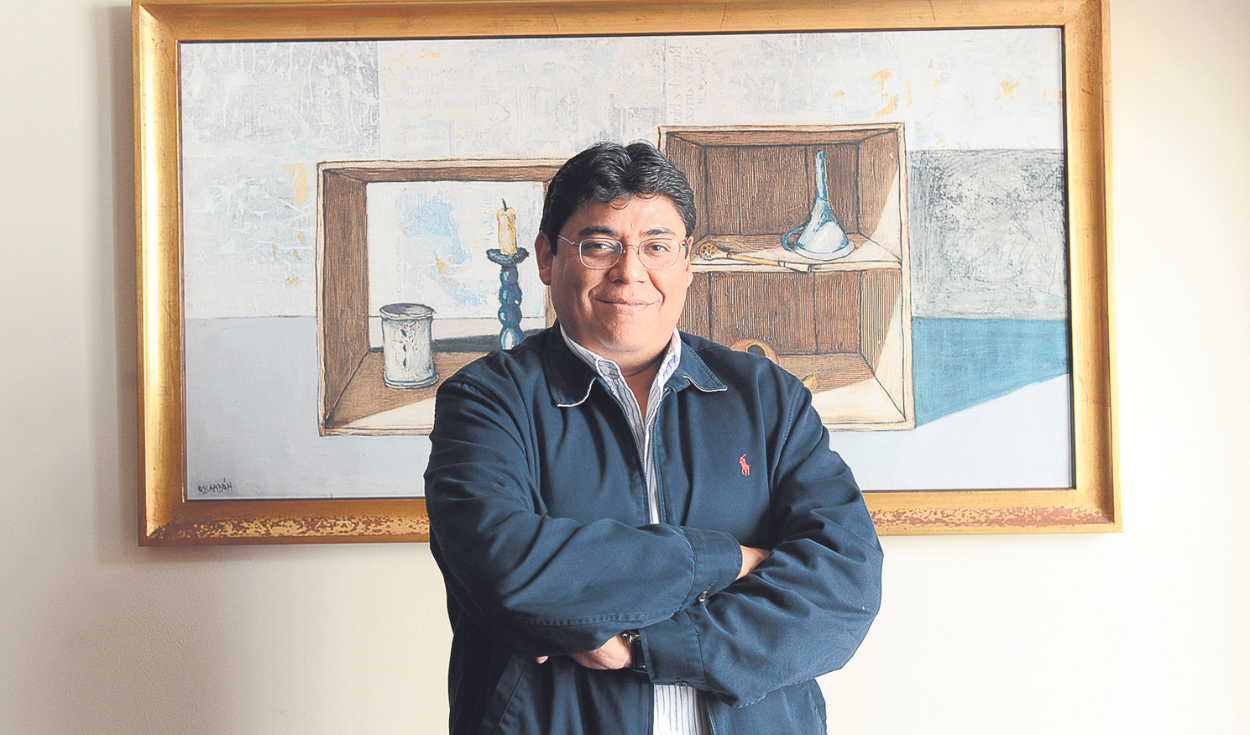
All projections for Peru have had a downward bias—which pushes us to the weakest GDP variation in 20 years without counting the pandemic—and Macroconsult is no exception. In the opinion of Elmer Cuba, the political factor has already passed and it is urgent to give predictability to the market, considering that private investment will close in the red and El Niño threatens production.
-What happened to the GDP in the third quarter?
-We are just seeing the true effects of drought, lack of urea and climate change. Obviously, it was going to be negative, but the figures are more accurate in fishing and agriculture. On the other hand, with the political problems and the paralysis of roads, construction fell. In 2022 there was a record in construction because in 2021 and 2022 people decided to improve their homes with their savings and AFP withdrawals.
-Macroconsult is the first entity that expects a decrease of 0.2% this year. How much would the fall be in the remainder?
–The third quarter is going to be slightly negative, but less than in the rest of what has already happened, and for the fourth, it will enter positive territory. In the second semester, we will remain slightly better than in the first, but with much lower levels that will take us to the negative of the year (-0.2%).
-Can you fall more?
-I no longer believe it because we are in October and we have reviewed things exhaustively. It is realistic to expect below zero. We could be talking about -0.1% or -0.3%, but we will be there.
-How much did politics influence the deterioration of GDP, considering that short-term business expectations have been negative for two years?
-Yes, three months from now they are still negative (expectations) because people expect El Niño. On the other hand, 12 months are better. You now ask a businessman or manager, how do you see Peru? For three months, you see it as bad, but by September of next year it will already be rebounding. Politics no longer weighs so much. The uncertainty of the elections whether or not they were going to be in 2026 weighs more, which defines certain investments, but it is not a dominant factor for the year to be negative.
-Did the MEF err on the side of optimism by ignoring the technical recession?
-They do what was appropriate. I can’t imagine an authority being pessimistic.
-With the accumulated fall in tax revenues, do you think the fiscal rules will be broken?
-It is possible that due to the weak collection and the Punch Peru program, which is an expansion of spending, the fiscal goal will slightly not be covered this year, but that does not worry me because they are transitory factors that will not be present next year. It’s not that Peru has suddenly become an irresponsible country. fiscally and something has to be done. The MEF cannot be required to be contractive. It would be counterproductive in a year with negative GDP. It doesn’t matter that the tax law is not complied with one year, the next will be a rebound year.
-How much would this rebound have to be in 2024?
-No one expects next year to be similar to this one. Surely there are frictions between 2% and 4% upwards (in 2024). (The government of) Boluarte It has to be ensured that it is a strong rebound so that it enters on the right foot towards 2025. A context of more political and economic stability is required.
-Where should the Boluarte management turn to reverse business pessimism?
-Private investment will fall due to three factors: the mining part because not all countries have a Quellaveco every year and due to lower residential investment. With the program With Punch and emblematic themes such as Majes Siguas II and accelerate one or another (initiative) mining it would be important; but this year it is lost. The potential effects of El Niño must be mitigated.
-And the adjustments to Con Punche?
-I think it is well calibrated because it has a part designed for the short term, bonds for vulnerable segments and public investment, already in the longer range. We must ensure that this happens. ProInversión’s role is key in awarding PPPs to relaunch the public part and also, of course, the private part. The mess of recent years is the six presidents in six years and dozens of ministers. This has to be built to provide stability.
-Do you think that the rise in BCRP interest rates explains the cooling of GDP?
-No, rather, it has been a fight against inflation that is having an effect. It has already begun to fall; But the Central (Reserve) Bank does have a responsibility towards 2024. If it does not lower fast rates, one could say that it would be affecting the rebound.
-Given the deterioration of private consumption and the rising cost of the basic basket, do you support a seventh withdrawal from the AFP?
-Indeed, food inflation led not only to a fall in real money but also to accommodating the basket in the middle, lower middle and poor classes, but it does not go beyond the issue of AFP. We are talking about independent and informal people who do not have pension funds.
-What if it were limited?
-If I have not contributed in the last two years and I am over 55 years old, yes. If I’m 25, I better keep saving.
Source: Larepublica
Alia is a professional author and journalist, working at 247 news agency. She writes on various topics from economy news to general interest pieces, providing readers with relevant and informative content. With years of experience, she brings a unique perspective and in-depth analysis to her work.












